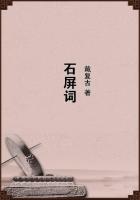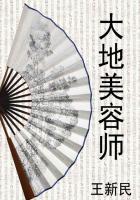Church's Life of Saint Anselm; Neander's Church History; Milman's History of the Latin Church; Stockl's History of the Philosophy of the Middle Ages; Ueberweg's History of Philosophy; Wordsworth's Ecclesiastical Biography; Trench's Mediaeval Church history;Digby's Ages of Faith; Fleury's Ecclesiastical History; Dupin's Ecclesiastical History; Biographie Universelle; M. Rousselot's Histoire de la Philosophie du Moyen Age; Newman's Mission of the Benedictine Order; Dugdale's Monasticon; Hallam's Literature of Europe; Hampden's article on the Scholastic Philosophy, in Encyclopaedia Metropolitana.
THOMAS AQUINAS
A. D. 1225(7)-1274.
THE SCHOLASTIC PHILOSOPHY.
We have seen how the cloister life of the Middle Ages developed meditative habits of mind, which were followed by a spirit of inquiry on deep theological questions. We have now to consider a great intellectual movement, stimulated by the effort to bring philosophy to the aid of theology, and thus more effectually to battle with insidious and rising heresies. The most illustrious representative of this movement was Thomas of Aquino, generally called Thomas Aquinas. With him we associate the Scholastic Philosophy, which, though barren in the results at which it aimed, led to a remarkable intellectual activity, and hence, indirectly, to the emancipation of the mind. It furnished teachers who prepared the way for the great lights of the Reformation.
Anselm had successfully battled with the rationalism of Roscelin, and also had furnished a new argument for the existence of God. He secured the triumph of Realism for a time and the apparent extinction of heresy. But a new impulse to thought was given, soon after his death, by a less profound but more popular and brilliant man, and, like him, a monk. This was the celebrated Peter Abelard, born in the year 1079, in Brittany, of noble parents, and a boy of remarkable precocity. He was a sort of knight-errant of philosophy, going from convent to convent and from school to school, disputing, while a mere youth, with learned teachers, wherever he could find them. Having vanquished the masters in the provincial schools, he turned his steps to Paris, at that time the intellectual centre of Europe. The university was not yet established, but the cathedral school of Notre Dame was presided over by William of Champeaux, who defended the Realism of Anselm.
To this famous cathedral school Abelard came as a pupil of the veteran dialectician at the age of twenty, and dared to dispute his doctrines. He soon set up as a teacher himself; but as Notre Dame was interdicted to him he retired to Melun, ten leagues from Paris, where enthusiastic pupils crowded to his lecture room, for he was witty, bold, sarcastic, acute, and eloquent. He afterwards removed to Paris, and so completely discomfited his old master that he retired from the field. Abelard then applied himself to the study of divinity, and attended the lectures of Anselm of Laon, who, though an old man, was treated by Abelard with great flippancy and arrogance. He then began to lee-tare on divinity as well as philosophy, with extraordinary eclat. Students flocked to his lecture room from all parts of Germany, Italy, France, and England.
It is said that five thousand young men attended his lectures, among whom one hundred were destined to be prelates, including that brilliant and able Italian who afterwards reigned as Innocent III.
It was about this time, 1117, when he was thirty-eight, that he encountered Heloise,--a passage of his life which will be considered in a later volume of this work. His unfortunate love and his cruel misfortune led to a temporary seclusion in a convent, from which, however, he issued to lecture with renewed popularity in a desert place in Champagne, where he constructed a vast edifice and dedicated it to the Paraclete. It was here that his most brilliant days were spent. It is said that three thousand pupils followed him to this wilderness. He was doubtless the most brilliant and successful lecturer that the Middle Ages ever saw.
He continued the controversy which was begun by Roscelin respecting universals, the reality or which he denied.
Abelard was not acquainted with the Greek, but in a Latin translation from the Arabic he had studied Aristotle, whom he regarded as the great master of dialectics, although not making use of his method, as did the great Scholastics of the succeeding century. Still, he was among the first to apply dialectics to theology. He maintained a certain independence of the patristic authority by his "Sic et Non," in which treatise he makes the authorities neutralize each other by placing side by side contradictory assertions. He maintained that the natural propensity to evil, in consequence of the original transgression, is not in itself sin; that sin consists in consenting to evil. "It is not," said he, "the temptation to lust that is sinful, but the acquiescence in the temptation;" hence, that virtue cannot be tested without temptations; consequently, that moral worth can only be truly estimated by God, to whom motives are known,--in short, that sin consists in the intention, and not in act. He admitted with Anselm that faith, in a certain sense, precedes knowledge, but insisted that one must know why and what he believes before his faith is established; hence, that faith works itself out of doubt by means of rational investigation.
The tendency of Abelard's teachings was rationalistic, and therefore he arrayed against himself the great champion of orthodoxy in his day,--Saint Bernard, Abbot of Clairvaux, the most influential churchman of his age, and the most devout and lofty.















